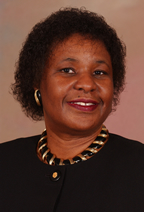Fatherhood and Public Policies: Myths, Facts, Challenges, and Future Directions, lecture by Cleopatra Howard Caldwell, PhD
Date & time
Nov 17, 2011,
12:30-2:00 pm EST
Location

Lunch will be provided. Space is limited; please RSVP to [email protected].
About the lecture
Fatherhood is both a social role and legal status. The way in which fathers fulfill their fathering responsibilities is of interest to both researchers and policymakers because of the implications for fathers and their children. In general, contemporary policymakers aim to give fathers more parental rights and responsibilities than previous generations, with the primary emphasis being establishing paternity, providing child support, and participating in child custody issues. This presentation will highlight results from a recent study funded by the Center for Public Policy in Diverse Societies designed to review federal, state, and local policies intended to assist fathers with their fathering responsibilities beyond the typical provider role and those that consider diverse groups of resident and nonresident fathers. Specific areas to be discussed include policy influences on definitions of fatherhood, presidential initiatives addressing fatherhood, exemplary state and local fatherhood policies, continuing challenges to father involvement, and suggestions for future policy directions based on current limitations and the results of our family-centered health intervention research with nonresident African American fathers and their preadolescent sons.
About the speakerCleopatra Howard Caldwell is an Associate Professor of Health Behavior and Health Education at the School of Public Health, University of Michigan, where she is also the Director of the Center for Research on Ethnicity, Culture and Health. She is a Faculty Associate with the Program for Research on Black Americans at the Institute for Social Research and an Affiliated Faculty Member in the Department of Psychology. Dr. Caldwell's research interest is in the area of psychosocial factors and family relationships as risk or protective factors for the well-being of ethnically diverse Black adolescents. Her community-based participatory research with nonresident African American fathers and their preadolescent sons resulted in a promising youth risk behavior preventive intervention for African American families. She is also collaborating with colleagues to examine the fathers' role in pregnancy outcomes as a way to expand discussions about reducing health disparities in birth outcomes.
This event is sponsored by The Students of Color in Public Policy (SCPP) in partnership with the Center for Public Policy in Diverse Societies at the Gerald R. Ford School of Public Policy.